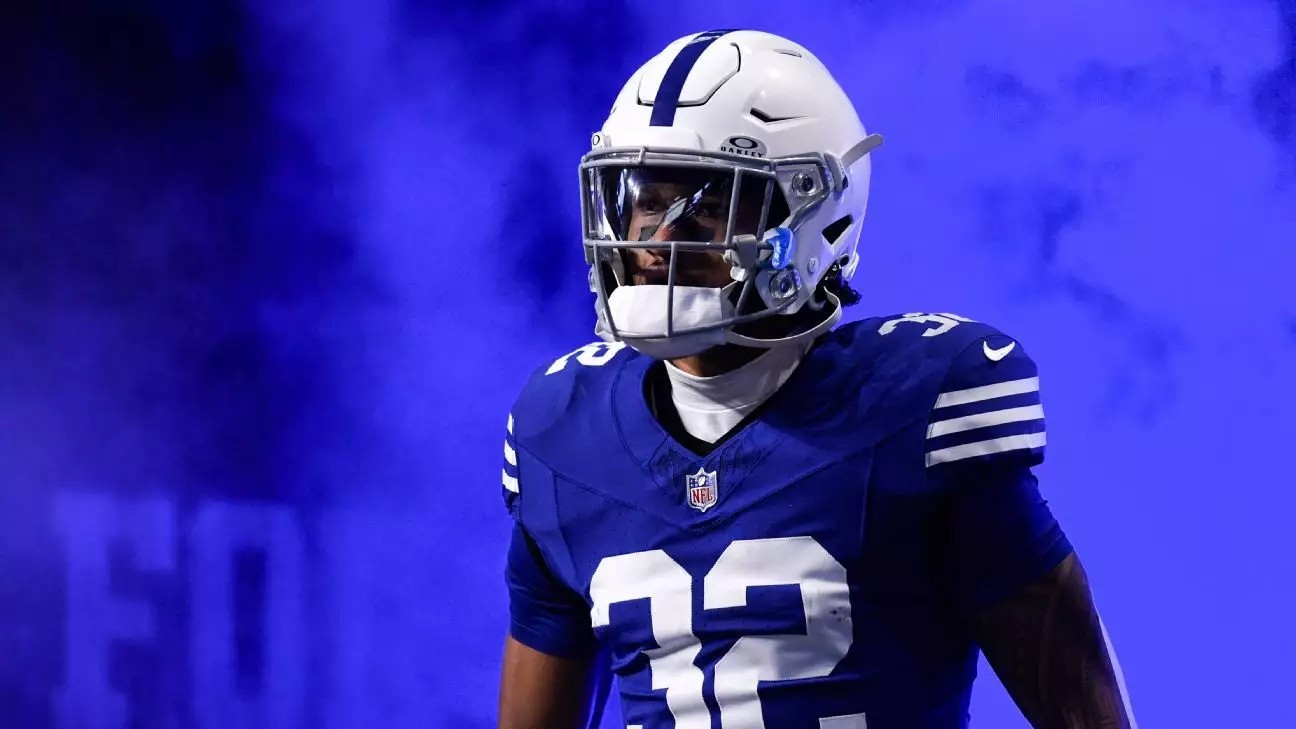The New Orleans Saints are at a pivotal juncture in their quest to fortify their defensive line, particularly the safety position, which has seen significant upheaval in recent months. The ongoing negotiations to bring Julian Blackmon into the fold exemplify a proactive approach toward rebuilding a secondary that has suffered notable losses. The departure of Tyrann Mathieu, a versatile and experienced leader, leaves a void that the Saints are eager to fill with talent that can bring both stability and playmaking ability. Blackmon’s addition could be more than just a stopgap; it could serve as a catalyst for a secondary eager to redefine itself under new leadership.
Blackmon’s career trajectory showcases a player who has exemplified resilience and adaptability, yet recent circumstances have curtailed his potential. His injury-plagued 2023 season, marked by a torn labrum, cast doubt on his productivity. However, his prior performance as a versatile defensive back suggests that, if healthy, Blackmon has much to offer. His ability to line up at both safety positions, honed during a stint with the Colts, indicates a flexibility that the Saints’ defense could desperately need. Given the team’s recent roster shake-ups—losing key players like Lattimore and Adebo—the secondary appears to be a canvas open for strategic craftsmanship. Blackmon’s proven playmaking skills, with 10 interceptions over five seasons, could inject the much-needed youth and dynamism.
The Broader Context: Navigating Cap Space and Strategic Investments
Once viewed as a contender with ample cap space—$23.8 million before Mathieu’s departure—the Saints now find themselves at a crossroads where prudent financial planning becomes crucial. The pursuit of Blackmon, who returned to the Colts last season on a modest deal, signals the franchise’s willingness to take calculated risks. Blackmon’s prior earnings, modest relative to league standards, suggest that a deal with the Saints might not be prohibitively expensive, thereby allowing Brooklyn-based management room to address other coverage needs.
The strategic move to sign younger, potentially high-upside players embodies a shift in approach. The Saints’ recent focus on developmental players like Ugo Amadi, Jordan Howden, and Terrell Burgess demonstrates an effort to build a resilient and adaptable defensive core. This youth movement, spearheaded by both personnel and schematics, indicates a philosophical change—embracing agility and long-term growth rather than relying solely on veteran dominance. This philosophy resonates with head coach Kellen Moore’s comments about adaptability—highlighting that roster decisions are fluid and require continuous recalibration. Blackmon’s versatile skill set fits well into this framework, offering the possibility to form a flexible and opportunistic safety tandem.
The Underlying Narrative: The Challenge of Injuries and the Road Ahead
If Blackmon’s injury history raises red flags, it also underscores a fundamental truth: health is an unpredictable variable in NFL success. His torn labrum in 2023 was a setback, but his perseverance in returning to play 16 games demonstrates resilience. Moreover, his contributions—interception plays and tackling—highlight a capability to influence the game positively. The Saints’ interest appears rooted in the belief that Blackmon, in a clean bill of health, can elevate their secondary’s ceiling.
Yet, the internal competition for starting spots remains fierce. The safety position, which has historically been a cornerstone of effective defenses, now faces a youthful renaissance. Players like J.T. Gray and Terrell Burgess offer promising skills, but their lack of extensive starting experience casts a shadow of uncertainty. The absence of an established veteran alongside Blackmon could initially hinder consistency but also opens the door for emerging leaders to step into key roles. This dynamic situation demands that the Saints’ coaching staff leverage both tact and strategic patience as they mold their secondary into a cohesive unit.


Leave a Reply